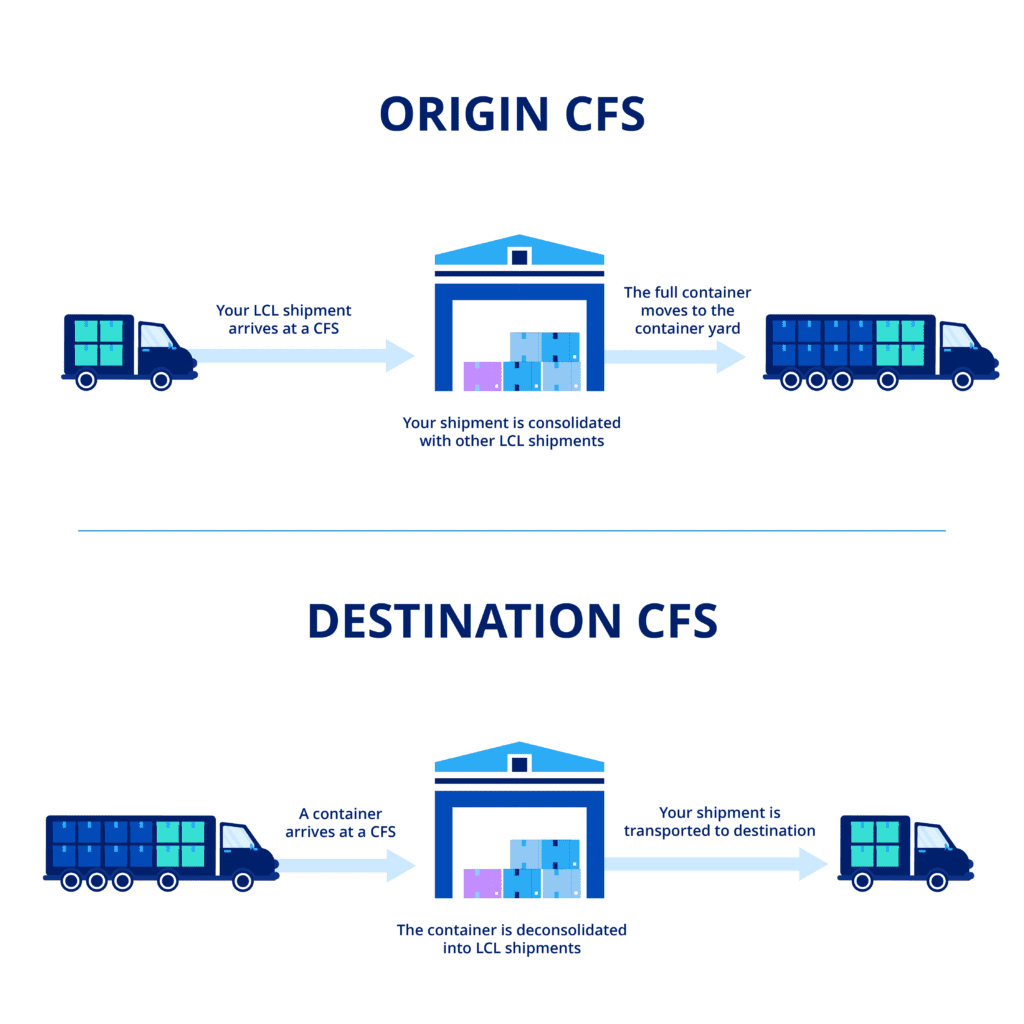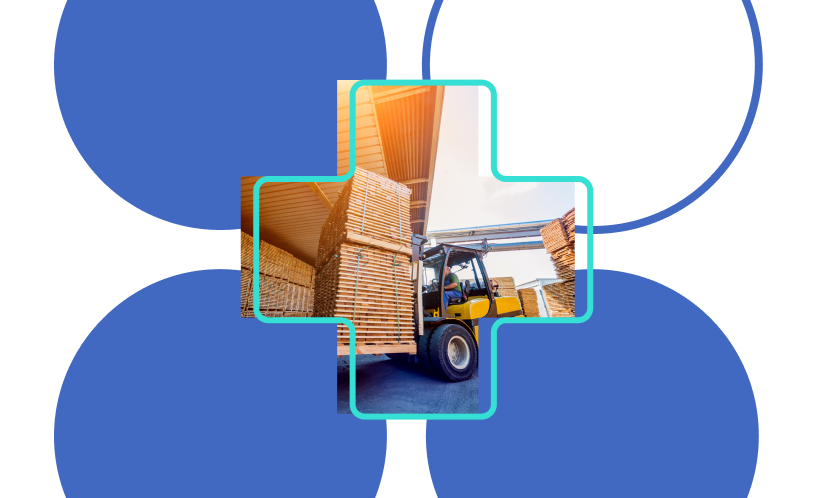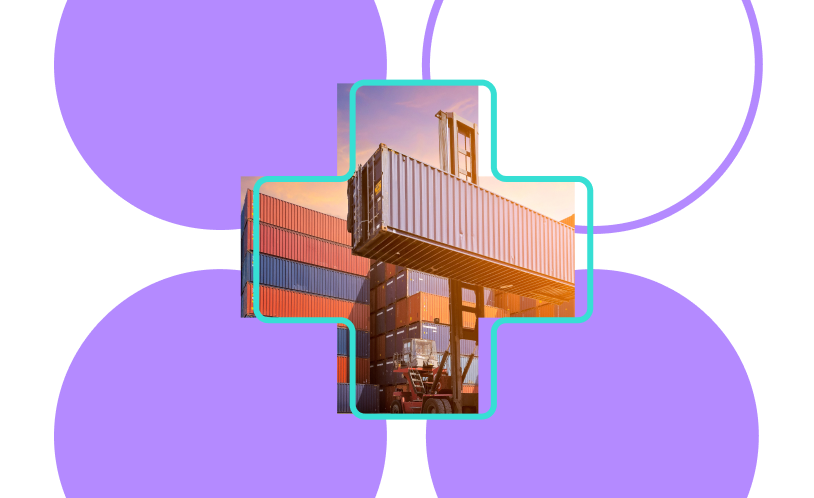If you ship LCL, your goods will spend some time at container freight stations (CFS) during shipment.
What are container freight stations? What do they do? How much do they cost?
Read on to find out.
What is a container freight station (CFS)?
Container freight stations are facilities that prepare LCL shipments for the next leg of their journey by consolidating (grouping) or deconsolidating (ungrouping) them.
Consolidating shipments means combining individual LCL shipments into an FCL (full container load) to prepare them for loading onto a vessel. Deconsolidation is the opposite: separating a container’s individual LCL shipments for final delivery.
CFS facilities are typically located close to transportation hubs such as ocean ports and terminals.
Your LCL shipment will make a stop at an origin CFS for consolidating and a destination CFS for deconsolidating.

What happens at a container freight station (CFS)?
Here’s a run-through of the process at a destination CFS:
- Consolidated freight gets delivered to the destination CFS
An FCL container with consolidated shipments arrives at the destination port.
- CFS deconsolidates the shipments
The shipments are deconsolidated at the CFS and checked. Then, the consignee, or recipient, is notified that they should start preparing for customs clearance.
- Goods undergo customs clearance
The customs broker or customs authorities are notified that the shipment is ready for customs clearance. Customs authorities assess the freight and collect duties for customs clearance.
- Get import clearance and gate pass
Once the shipment is released by customs and any other holds are removed, CFS will make the shipment available for pick up by the importer’s trucker.
Ready to get your goods moving?
What are the other functions of a container freight station (CFS)?
Container freight stations form a vital link in supply chain operations. In addition to consolidation and deconsolidation, they also serve a number of other functions, including:
- Loading and unloading containers
- Receiving shipments (at origin) and dispatching them (at destination)
- Assessing shipment weight and inspecting containers
- Providing temporary storage of empty containers
- Allowing shipment tracking by keeping track of the names of importers, exporters, customs agents, and any other relevant parties
- Preparing a container load plan, which is a document with any specific instructions of how a shipment should be loaded
What benefits does a CFS provide?
A CFS can provide a number of benefits to supply chain management:
- Speeding up transportation and shipment processes by identifying and prioritizing shipments
- Providing additional security – CFS facilities are secured so goods can be stored safely before and after shipping and then sent directly to warehouses or other destinations
- Increasing overall supply chain efficiency by providing short-term storage
- Helping reduce congestion at ports by offering an off-dock storage location for containers

What is the difference between a container freight station (CFS) and a container yard (CY)?
Container yards and container freight stations both play a role in the storage and preparation of containers for shipping or unloading. And both are locations where customs can access cargo.
However, container yards do not provide consolidation or deconsolidation of LCL shipments.
| Container Freight Station (CFS) | Container Yard (CY) |
|---|---|
| Container Freight Station (CFS) | Container Yard (CY) |
| Handles consolidation and deconsolidation, import and export transactions, freight examination, and customs | Handles loading, unloading, and temporary storing of containers only |
| Located outside but near the port and serves as an extension of the port | Located in a dedicated area within the port |
| Deals with both FCL and LCL shipments | Deals with FCL shipments only |
| Licensed and certified by US Customs | Operated by port authorities |
What container freight station (CFS) charges and fees exist?
LCL shipments will need to pay container freight station fees.
What is included in CFS charges?
CFS fees typically cover:
- Trucking the container from the port to CFS
- Loading and unloading
- Consolidating and deconsolidating
- Any necessary palletizing
- Documentation handling
- Customs release procedures
- Loading the shipment from the CFS to the truck picking up the shipment
In some cases, CFSs also handle last-mile delivery.
How are CFS fees calculated?
Some CFS charges, such as handling charges, run at flat rates, but most are calculated according to the weight or volume of the shipment.
In some cases, CFS fees are negotiable. Working with an experienced logistics provider can help mitigate some CFS costs, prevent associated delays, and ensure a smooth shipment process.



